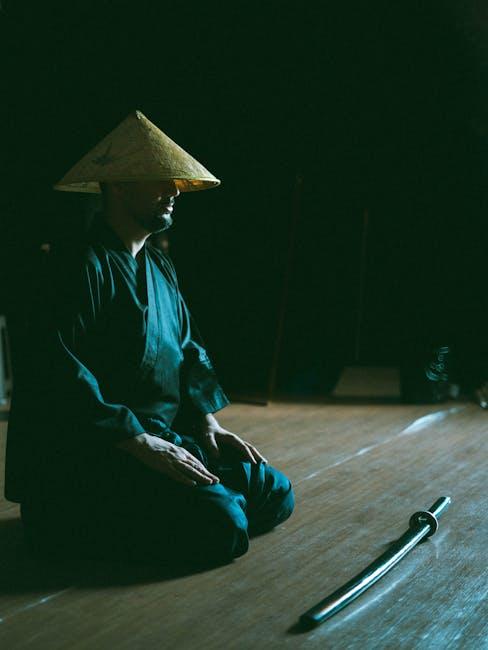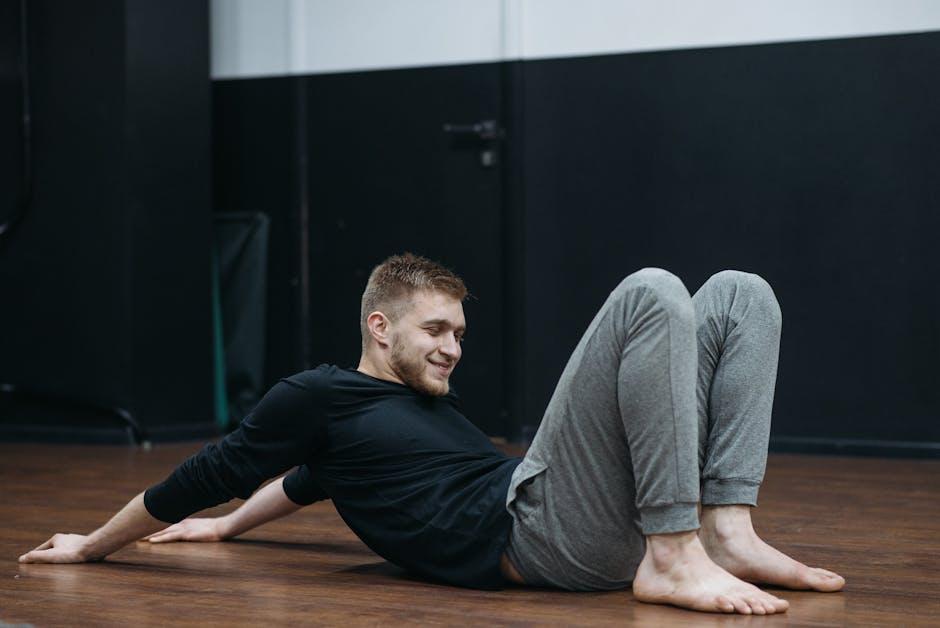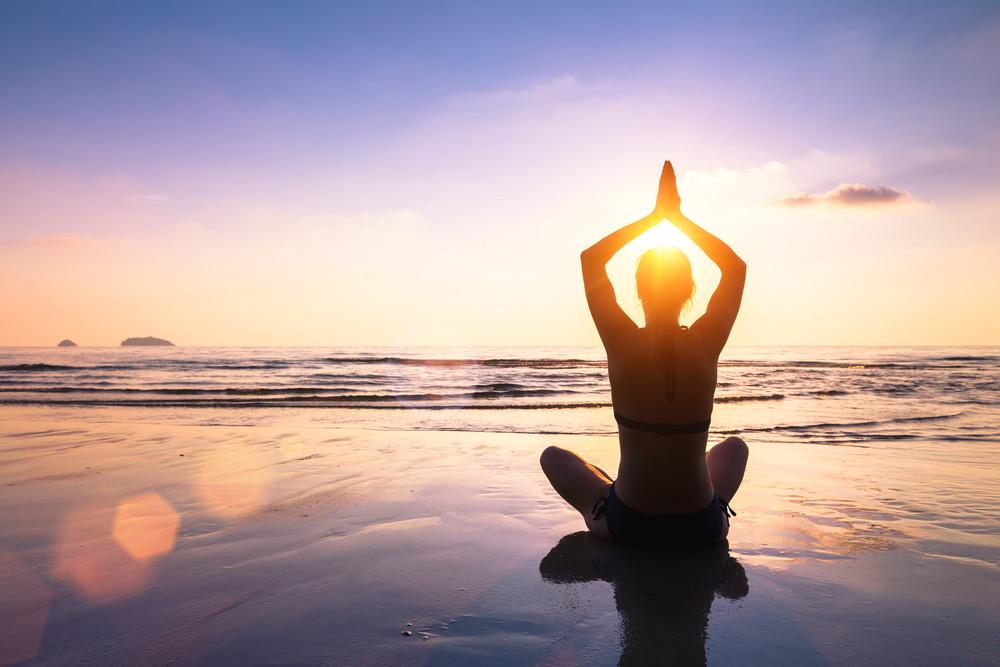In a world that never seems to pause, where the cacophony of daily life can often drown out the whispers of our inner peace, the quest for relaxation has become more crucial than ever. From the soothing strains of classical music to the gentle embrace of a warm bath, people have long sought methods to unwind and rejuvenate. Yet, amid this rich tapestry of relaxation techniques, meditation has emerged as a beacon of tranquility, promising not just a temporary escape but a deeper, more profound serenity. As its popularity continues to rise, a provocative question surfaces: should meditation supplant other time-honored relaxation methods? This article delves into this intriguing debate, exploring the potential of meditation to stand alone as the ultimate path to relaxation, while considering the diverse array of options that have long offered solace to the weary soul. Meditation for Modern Relaxation”>
Meditation for Modern Relaxation”>
Exploring the Ancient Practice of Meditation for Modern Relaxation
Meditation, a practice with roots tracing back thousands of years, is increasingly becoming a cornerstone of modern relaxation techniques. This ancient art offers a unique approach to unwinding, distinct from other popular methods like yoga, exercise, or reading. The key lies in its simplicity and accessibility. Anyone can meditate almost anywhere, without the need for special equipment or settings. By focusing on the breath and embracing the present moment, meditation helps in calming the mind, reducing stress, and promoting emotional health.
- Mindfulness: Enhances awareness and concentration, allowing you to enjoy each moment fully.
- Stress Reduction: Regular practice lowers cortisol levels, the hormone associated with stress.
- Emotional Balance: Encourages a deeper understanding of oneself, fostering emotional stability.
- Improved Sleep: By promoting relaxation, meditation can improve sleep quality.
While other relaxation methods certainly have their merits, meditation’s versatility and profound benefits make it a compelling option for those seeking tranquility amidst the chaos of modern life.
Comparing Meditation with Traditional Relaxation Techniques
In the realm of relaxation, meditation and traditional techniques like deep breathing, progressive muscle relaxation, and visualization each offer unique benefits. While meditation emphasizes mindfulness and present-moment awareness, traditional methods often focus on immediate physical relaxation and mental tranquility. Meditation involves cultivating a state of focused attention, often through practices like breathing exercises or mantra repetition. It seeks to build a deeper connection with one’s inner self, promoting long-term mental clarity and emotional resilience.
On the other hand, traditional relaxation techniques provide immediate stress relief and are typically more structured in nature. Some key elements include:
- Deep Breathing: A simple method that calms the nervous system and reduces stress hormones.
- Progressive Muscle Relaxation: Involves tensing and then relaxing muscle groups to release tension.
- Visualization: Encourages the mind to picture calming images or scenarios, creating a mental escape from stressors.
While meditation fosters a gradual, transformative shift in perspective, traditional techniques offer quick, accessible solutions for stress management. The choice between them need not be exclusive; instead, they can complement each other to enhance overall well-being.

Benefits and Limitations of Meditation in Stress Relief
Meditation has gained popularity as a tool for stress relief due to its ability to promote mental clarity and emotional well-being. Among its benefits, meditation can help individuals achieve a state of deep relaxation, reduce anxiety, and improve concentration. It also encourages mindfulness, which can lead to a better understanding of personal stress triggers. Moreover, regular practice has been shown to lower cortisol levels, the hormone associated with stress, thereby enhancing overall health.
However, there are limitations to consider. Meditation requires patience and consistency, which can be challenging for those seeking immediate results. It might not be suitable for everyone, especially individuals who have difficulty sitting still or focusing. Additionally, while meditation can complement other stress-relief methods, it may not address all underlying causes of stress on its own. As with any wellness practice, it’s important to tailor stress management strategies to fit individual needs and lifestyles.
- Benefits: Deep relaxation, reduced anxiety, improved concentration, mindfulness, lower cortisol levels.
- Limitations: Requires patience, not suitable for everyone, may not address all stress causes.

Expert Recommendations: Integrating Meditation into Your Relaxation Routine
Experts suggest that integrating meditation into your existing relaxation routine can offer a balanced approach to mental well-being. While meditation is renowned for its ability to reduce stress and promote a sense of calm, it doesn’t necessarily need to replace other methods you already find beneficial. Instead, it can serve as a complementary practice that enhances the effects of your current relaxation techniques.
- Combine Practices: Try pairing meditation with activities like yoga or tai chi for a holistic approach that engages both mind and body.
- Flexible Timing: Incorporate short meditation sessions into your day, whether in the morning to set a peaceful tone or in the evening to unwind.
- Mindful Adaptation: Use meditation to cultivate mindfulness, which can be integrated into other relaxation practices, such as deep breathing or listening to soothing music.
By incorporating meditation into your routine, you create a versatile toolkit for relaxation that can be adapted to meet your personal needs and preferences. This integrated approach can enhance the benefits of both meditation and your existing methods, fostering a more resilient and relaxed state of mind.
Insights and Conclusions
In the ever-evolving landscape of relaxation techniques, meditation stands as a beacon of tranquility, offering a path to inner peace that many have embraced. Yet, as we ponder the question of whether it should replace other methods, it’s clear that the tapestry of relaxation is richly woven with diverse practices, each resonating uniquely with different individuals. The key lies not in choosing one over the other, but in understanding what nurtures your soul and soothes your mind. As we close this exploration, may you find your own harmonious blend of relaxation, a personal symphony that guides you towards balance and well-being in your daily life.
